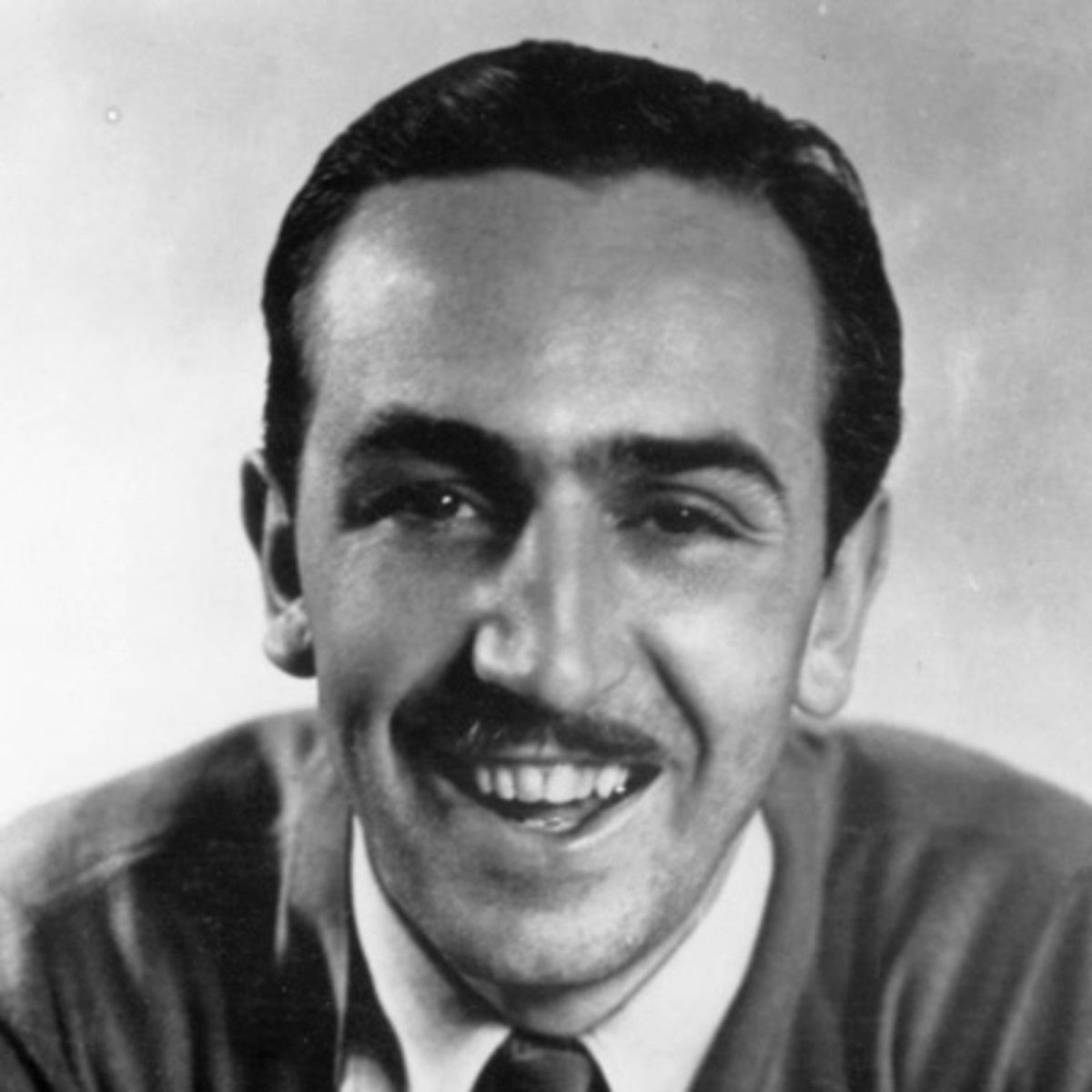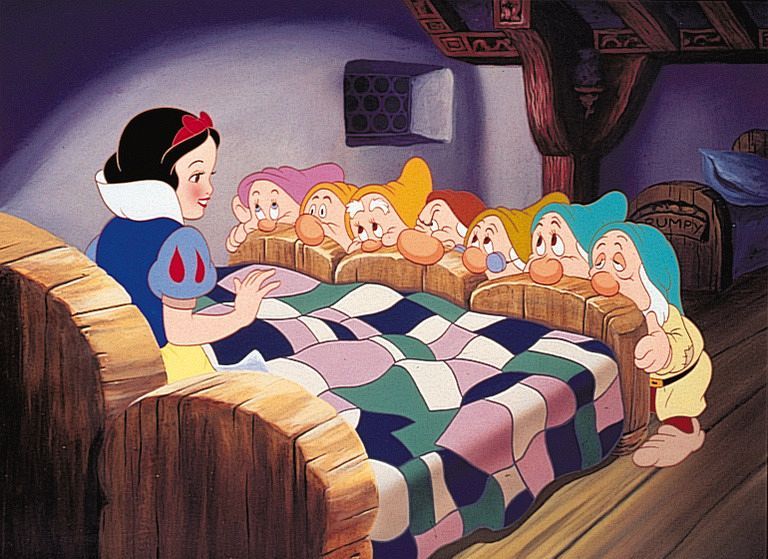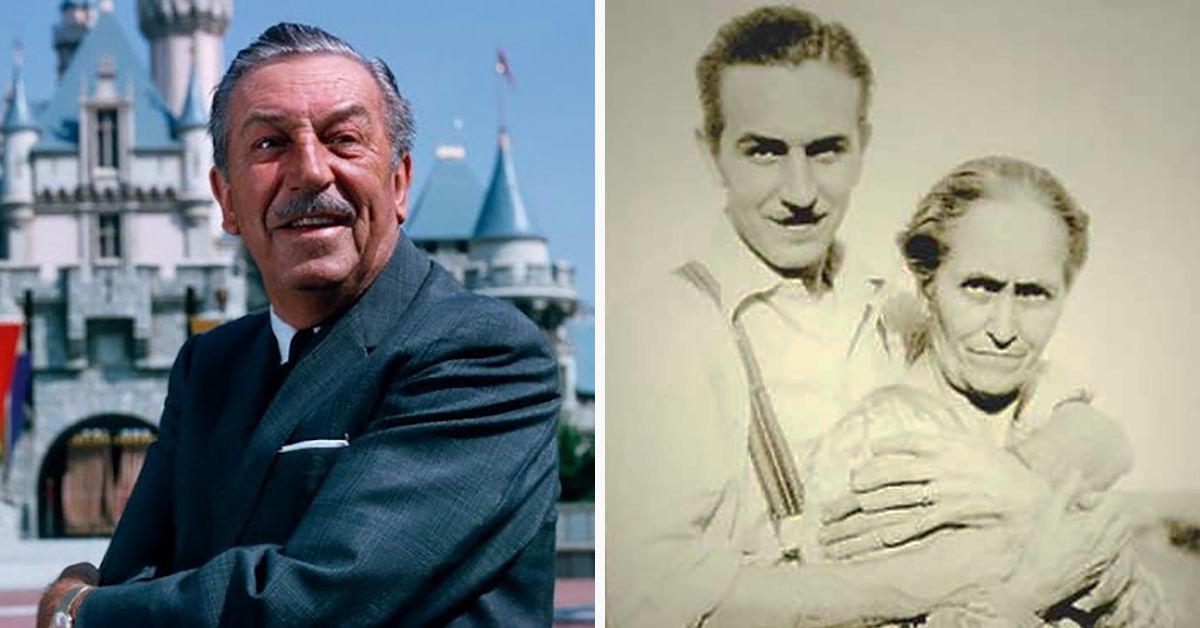We all know of Walt Disney as a wonderful man who brought us so many uplifting stories. His legacy lives on in theme parks, films, and storybooks, but who was the man we all knew as Mr. Disney?

Many people will be surprised to learn that the man who created so many classics was actually deeply troubled. After gaining success as a movie producer, Disney wanted to do something special for his parents, and that "something special" cost his mom her life.
While the death of anyone's mother is tragic, it's presumed that Disney worked his grief into many of his creative works without the audience ever piecing it together.
So what lead to the death of Disney's mother? And how did it affect his work? Let's find out.
His Success
Walt Disney went out on a limb to produce Snow White and the Seven Dwarfs. Considered the biggest long shot in film history, Disney risked everything he had in order to release his first feature-length animated film. The film became the highest grossing movie of its era, and set Disney up nicely to continue his career and dominate the industry.

From there, Disney went on to produce at least 150 movies in the studio purchased with his Snow White money. To this date, he is the most decorated film producer, earning 22 Academy awards out of 59 nominations.
Like all children, Disney wanted to do something nice for his parents, Flora and Elias. He and his brother, Roy, had always promised to buy their parents a house when they made it as movie producers, so after the success of Snow White, they bought a house in North Hollywood. Flora and Elias moved their lives from Oregon to California, and it all seemed like a dream come true.
Until it became a nightmare.
The House
Flora and Elias were enjoying their new home and new life in California. They had been there for almost a month, and everything was going well. Flora complained about the fumes from their gas furnace one day to Disney, so he sent the studio repairmen to fix it. They said the job was done, but a few days later Flora was still complaining about the smell. She even wrote about it in a letter to her daughter.
A few days later, Flora was dead.
The studio repairmen were not professional furnace fixers, and ultimately the problem persisted.
"The housekeeper came in the next morning and pulled his mother and father out on the front lawn," Don Hahn, a long-time producer with Disney, said. "His father was sick and went to the hospital, but his mother died."
Since that day, Walt Disney blamed himself for his mother's death.
"He never spoke about that time because he personally felt responsible because he had become so successful that he said, 'Let me buy you a house.' It's every kid's dream to buy their parents a house and just through a strange freak of nature -- through no fault of his own -- the studio workers didn't know what they were doing," said Hahn.
Even years later, when Disney's daughter Sharon asked her father about her grandmother, the producer snapped at her and yelled "I don't want to talk about it."
But as with any creative mind, grief needs to be expressed. Though you may not have realized it, the theory is that Walt Disney worked his own tragedy into almost all of his films.
Theories
Hahn has often been asked about why there are rarely mother figures in the stories produced my Walt Disney. The running theory among fans is that because of guilt, Disney refused to give any character a maternal figure. Almost every mother in his stories was killed or had died. Hahn doesn't disagree with this.
"There's a theory, and I'm not a psychologist, but he was really haunted by that," Hahn said. "That idea that he really contributed to his mom's death was really tragic."
Hahn also has his own theory as to why mothers are absent in most Disney films.
"One reason is practical because the movies are 80 or 90 minutes long, and Disney films are about growing up,: he said. "They're about that day in your life when you have to accept responsibility. Simba ran away from home but had to come back. In shorthand, it's much quicker to have characters grow up when you bump off their parents. Bambi's mother gets killed, so he has to grow up. Belle only has a father, but he gets lost, so she has to step into that position. It's a story shorthand."
According to Snopes, however, the theory that the lack of mothers in his works is due to Disney's own experience isn't correct. They have their own theory:
Most of the traditional tales and children's literature available to Disney for adaptation into animated films involved young protagonists whose mothers (or parents) were dead, absent, or inattentive, or who had been left in the care of stepparents, relatives, or others who were jealous or resentful about having to raise someone else's offspring. This circumstance is prevalent in such works because it is the central dynamic that propels the plots of those kinds of stories: They are coming-of-age tales, and the absence of one or both parents forces the youthful main characters to venture into the larger world without parental guidance and protection (particularly of the maternal kind), to learn the lessons necessary to overcome adversity, and to succeed or fail on their own terms.
His mother's death haunted him until the very end, but Disney's last words had nothing to do with that. They did, however, involve an incredibly famous star.
Last Words
In 1966, Walt Disney passed away from lung cancer, just months after being diagnosed. He never got to see the finished product of EPCOT, which were his big plans for a new theme park.
When he did, the world mourned. They had never seen such a talent like Disney, and were devastated that a man who brought everyone else so much joy was taken from them at just 65 years of age.
It wasn't until 1970, however, that Walt Disney's last words were uncovered, and there's something eerie about them.
While former Disney archivist Dave Smith was going through Disney's old room, which had not been touched since his death, he uncovered a note from Disney himself. There were only two words on the paper:
KIRT RUSSELL
"These were obviously projects that [Walt] thought would be good to do," said Smith. "In the early 1970s, when we still had this office up at the Studio, Kurt Russell was on the lot filming Now You See Him, Now You Don't. I went down to the stage one lunch time and I said, 'I've got something I'd like you to see up in Walt's office.' I took him up to Walt's office and showed him one of the last things that Walt had written was his name. I think he was quite impressed even though Walt misspelled it. He's got Kurt [as] 'Kirt.'"
Russell himself has spoken about the legendary note, though he doesn't know the meaning behind it.
"I assume, as [does] everybody else, that he was talking about some movie that he was thinking about having me in," he said in an interview with Barbara Walters. "I don't know what to make of it other than that."
